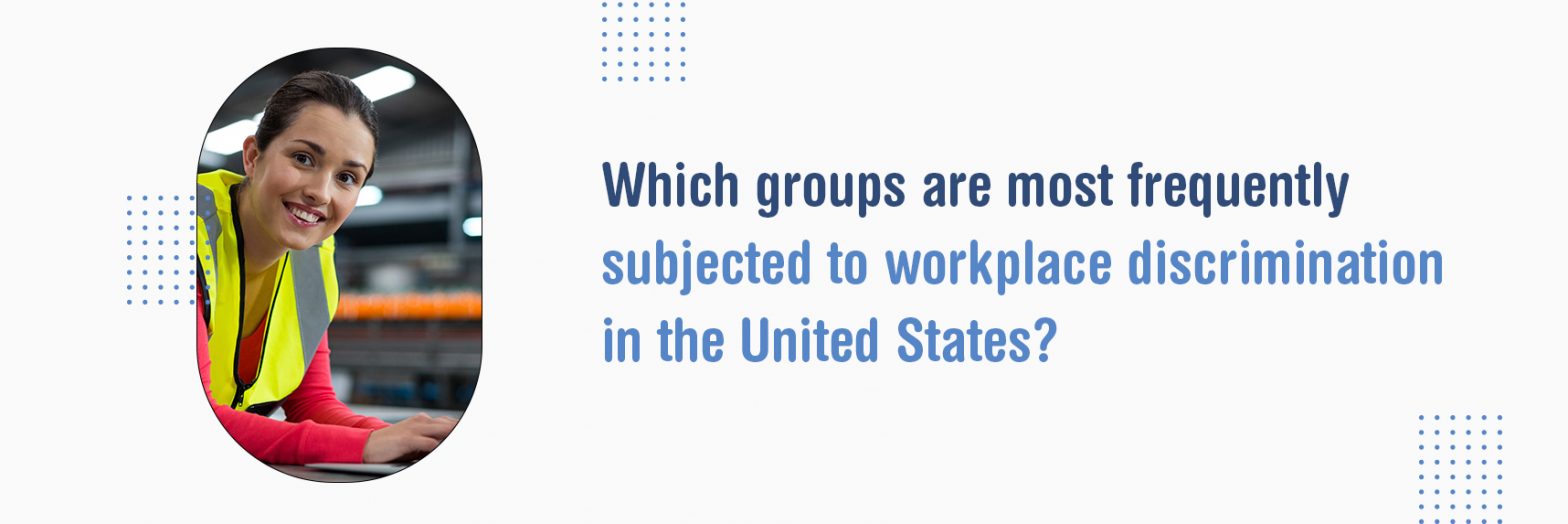Workplace discrimination is a prevalent problem in the United States, where employees are treated unjustly or disadvantaged based on factors such as their race, religion, gender, age, sexual orientation or other characteristics. Discrimination comes in various forms like harassment, unequal pay, or not getting promoted or other opportunities.
It is important to note that there are federal and state laws in place to prevent workplace discrimination. However, it is still prevalent across various industries and some groups of people are more likely to experience it than others.
Which groups are most commonly targeted by workplace discrimination in the United States?
Data from the U.S. Equal Employment Opportunity Commission (EEOC) shows that racial or ethnic minorities are the most frequently targeted group in workplace discrimination cases. In 2020, the EEOC received a total of 44,605 charges of race discrimination, representing 36.6% of all charges filed. Black workers were the most likely to report experiencing discrimination, followed by Hispanic workers.
Other groups that are statistically more likely to face discrimination in the workplace include:
- Women: The EEOC received a total of 16,041 charges of gender discrimination in 2020, which makes up 13.3% of all charges filed. Women are more likely to experience discrimination in areas such as pay, promotions, and job assignments.
- Older workers: The EEOC received a total of 16,113 charges of age discrimination in 2020, making up 13.4% of all charges filed. Older workers are often disadvantaged in the workplace due to age-related stereotypes and discrimination.
- LGBTQ+ workers: The EEOC received a total of 7,604 charges of discrimination based on sexual orientation in 2020, making up 6.3% of all charges filed. LGBTQ+ workers are often targeted due to biases and prejudices against their sexual orientation or gender identity.
- Workers with disabilities: The EEOC received a total of 33,109 charges of disability discrimination in 2020, making up 27.8% of all charges filed. Workers with disabilities often face barriers in the workplace, including discrimination and a lack of accommodations.
It’s important to note that these groups are not mutually exclusive and an individual may experience discrimination based on multiple characteristics. For example, a Black woman with a disability may face discrimination based on their race, gender, and disability.
In conclusion, racial and ethnic minorities, women, older workers, LGBTQ+ workers, and workers with disabilities are groups that are statistically more likely to experience workplace discrimination in the United States. Employers should be aware of these issues and take steps to create an inclusive and respectful work environment for all employees, regardless of their characteristics.
Which groups are most frequently subjected to workplace discrimination in the United States? If you are among those who have filed or are considering filing a Workers’ Comp claim and are uncertain about how to proceed, it is essential to seek legal assistance from a Workers’ Compensation lawyer who can guide you through the process and help you understand your rights.
At the Law Office of Dr. Peter M. Schaeffer, we have experienced attorneys who specialize in Workers’ Compensation claims, including those related to workplace discrimination. We understand that discrimination in the workplace can have a significant impact on employees’ lives and livelihoods. Our legal team can help you navigate the complex legal process and fight for your rights.
As one of the best law firms in California, we have offices located throughout the state, including in major locations such as Riverside, Perris, Sun City, Corona, Temecula, Moreno Valley, San Bernardino, Hemet, Victor Valley, Beaumont, Banning, Yucca Valley, Palm Springs, Palm Desert, and Indio Brawley. Please do not hesitate to contact us to learn more about Workers’ Compensation and receive a consultation from one of our experienced attorneys. We are dedicated to helping our clients receive the support and benefits they deserve after experiencing workplace discrimination or other injustices.




